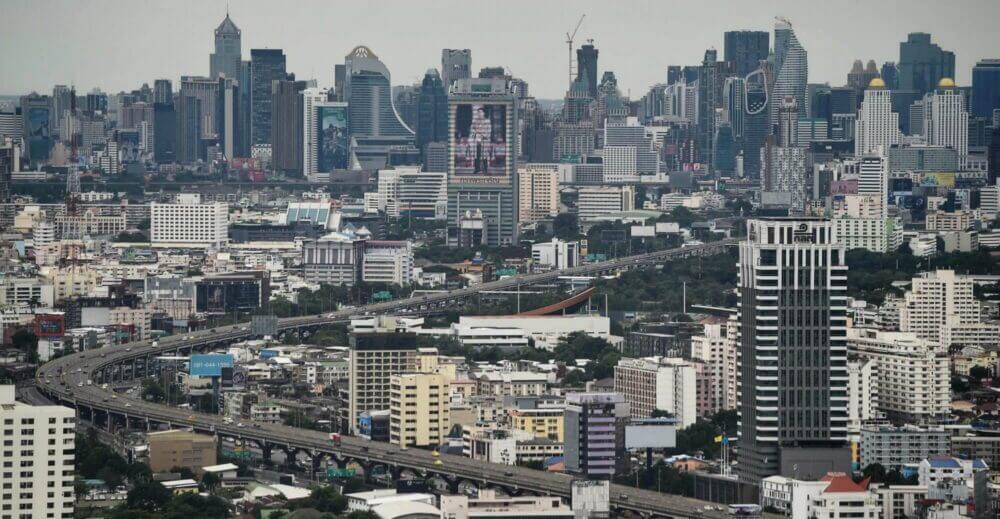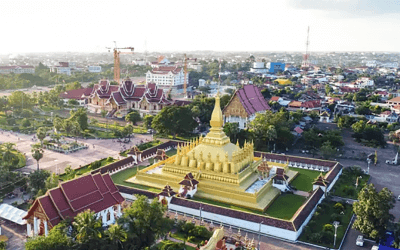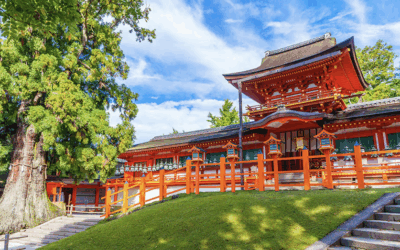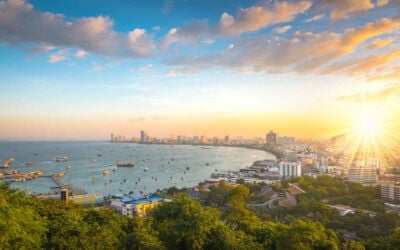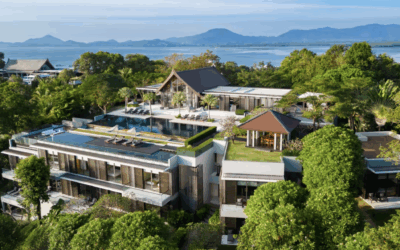Last updated February 27th, 2025.
There is one country that undoubtedly comes to mind when someone mentions Southeast Asia: Thailand. Foreign property ownership in Thailand is among the most popular methods of direct investment in Asia.
Westerners will sometimes automatically direct their attention to the “Land of Smiles”. Thailand is among the most heavily-touristed countries on earth, after all.
People tend to invest in what they’re familiar with. This statement has been proven true time and again, which is why Thailand’s property market is a common choice.
Yet this desire to own real estate in Thailand isn’t typically borne out of sensible financial considerations.
Annual travel rankings consistently show Bangkok as the most visited city in the world. While that may be true, it doesn’t mean that the investment climate is ideal for foreigners.
In the past, we’ve covered the prices and the aspects to take into account when purchasing Bangkok real estate, and we’ve also considered some of the reasons why buying condos in Thailand might not be ideal.
Below, we’ll cover all aspects of foreign property ownership in Thailand. Specifically, what types of real estate foreigners can and cannot own – whether we’re talking about a condo, land, or a house.
First though, we’ll start off with the bad news about property investment in Thailand.
Foreigners Can’t Own Land in Thailand
It’s a sad reality of Asia, but more often than not, foreigners can’t legally own land or houses. Thailand is no exception.
This tends to be the sign of economies which haven’t yet fully adapted to the “Washington Consensus” – a set of economic prescriptions designed to help a country incorporate into global financial markets, eventually reaching the level of developed economies.
As such, because Thailand is still developing as an economy, it hasn’t had the opportunity to modify its policy prescriptions.
There’s always a bit of jingoistic zeal mixed in with these types of restrictions as well. But perhaps in time, this too will change.
For now, though, foreigners can’t legally own land in Thailand. It can only leased on a 30-year basis if you aren’t a local citizen.
It’s a bit of a strange concept to wrap your head around: foreigners can own structures (including houses and villas), but not the actual land it sits on.
While it’s common in Western nations for property ownership to be an all-encompassing concept, that is a bias of our own culture; legally speaking, the matter is far more complicated.
Lawyers in Thailand may deem property ownership to be a “bundle of rights” that can be bought, sold, and traded for prolonged periods of time.
What happens in Thailand, and many Asian countries, is that the “bundle of rights” gets unbundled. Hence, you can own property, but not the land it sits on.
Consider it like putting your car in a parking space. Once your parking meter runs out, there will be fines to pay if there is anything left standing there. Yet in practice, these types of agreements tend to be prolonged without major complications.
However, there are people who try to sidestep these potential legal issues and get around the land ownership rule by using a company or nominee structure.
It seems to make sense on paper, as corporations are technically distinct legal entities from its directors, right?
Unfortunately, while this is possible in some countries, it is specifically not allowed in Thailand. As such, a lot of effort is fruitlessly expended to try to bend the laws instead of trying to go with the grain.
Land ownership in Thailand simply isn’t legal as a foreigner. Instead of fighting the system though, why not do what is allowed and garner those benefits?
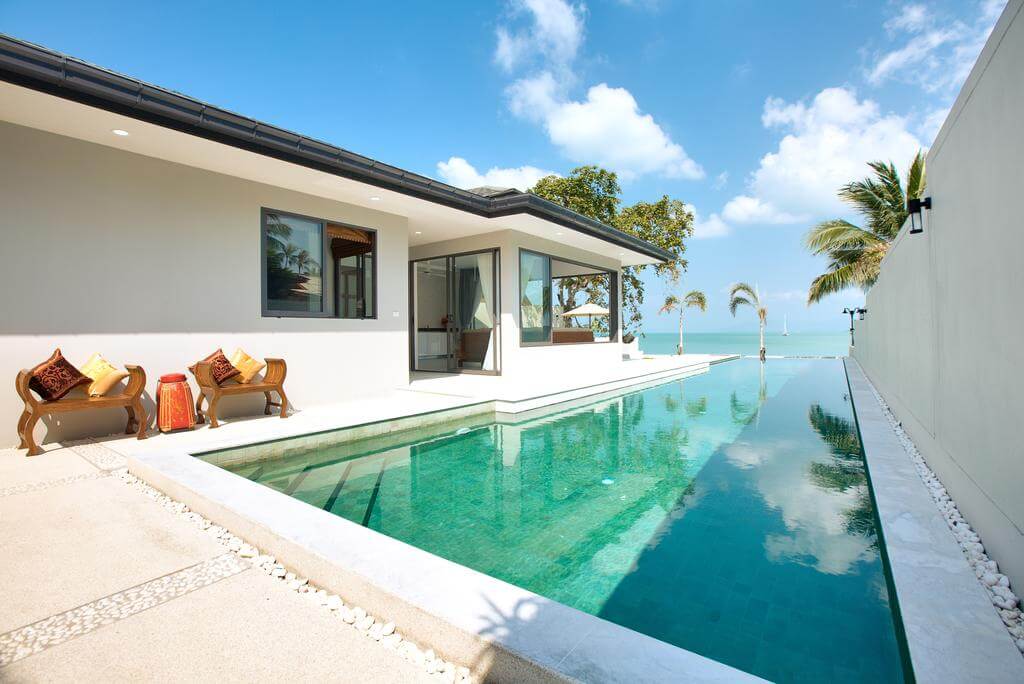
You can buy a condo in Thailand with full-rights as a foreigner. This gives you a strata title and full rights to the unit. Freehold land ownership remains off limits to non-citizens though, except for long-term leases.
Foreigners Can Buy Condos in Thailand
Foreign buyers can fully own condo units on a freehold basis in Thailand. In other words, while you cannot buy the land underneath a large apartment complex, you can certainly buy a portion of the apartments on that land.
However, as always in Thailand, things are not as straightforward as they initially seem.
There are rules that state that foreigners cannot own any more than 49% of the floor space in any single building. In practice, it is uncommon to find buildings that even come close to meeting the 49% foreign ownership threshold though.
Nevertheless, this partially means that your ability to invest depends entirely on whether or not a given property is popular with other expats.
Despite it not being its original intention, this restriction can serve to a certain extent as an early warning system that something is overvalued.
Given that the average Thai’s monthly salary is 15,000 Thai baht (or about US$400), the likeliest culprits for pushing up real estate values are other foreigners, who have enough capital from abroad to be able to warp the internal markets.
As such, not being allowed to invest in properties that are primarily expat-invested, might actually be a good thing.
Thailand, in general, is a country that is careful with how foreigners interact with it, but it has built in certain incentives to motivate certain investments.
Benefits of Real Estate Investment in Thailand
Thailand has recently been trying to shake its reputation as a place where cheap digital nomads can set up shop and is now trying to cater to a higher caliber audience.
To qualify for its investment visa program you have to purchase property worth ten million baht (around $270,000), which is a steeper price than alternatives like the MM2H program in Malaysia.
Nevertheless, a Thai property investment visa allows you lifetime access to one of Asia’s most centrally located and dynamic economies. In addition, it lets you live in Thailand permanently, if that is your main goal.
To qualify for this investment program, the purchase must be directly from a property developer and certain other rules must be followed to obtain this visa.
Is Owning Property in Thailand a Good Idea?
Property ownership in Thailand as a foreigner has its drawbacks, though much the same can be said about many other areas in Asia.
The fact that foreigners are allowed to own condos in Thaland, but not land, further complicates the issue of investing here.
Nevertheless, as the economy develops over time, there’s potential upside n the Thai real estate market. We’re of the opinion that, while popular, Thai property is overvalued.
Having said this, just because an country tends to be overvalued doesn’t mean that its real estate market is entirely without investment prospects.
As a large country with over 70 million inhabitants, Thailand’s property market is diverse. It’s not just all about Bangkok or Phuket. There are dozens of small cities with populations of a few hundred thousand.
Full disclosure: our founder, Reid, went through Thailand’s residence investment program himself.
While we can’t speak for Thailand’s future, our founder did rather well since investing there about a decade ago and found the program reasonably straightforward.
Times are changing. Whether it ultimately turns out to be a good decision for you depends on what your investment horizon is, and what you’re looking for!
FAQs: Thai Foreign Property Ownership
Can Foreigners Buy Property in Thailand?
Yes, foreigners can buy condo units in Thailand on a freehold basis. However, it's not possible to own land as a foreigner in Thailand.
Are Foreigners Able to Own a House in Thailand?
It's complicated. Foreigners can own houses and physical structures in Thailand, but not land.
There's a solid arguement that owning a house is pointless if you don't have any rights to the land it sits on. As such, in a practical sense, you can't own a house in Thailand as a foreigner.
Can Foreigners Own Land in Thailand?
No, foreigners aren't allowed to own land in Thailand in any form. If you aren't a Thai citizen, it's only possible to lease land for a period of 30 years with a possible renewal upon its expiration.
It's not possible to bypass this law with a nomineee either. All types of nominee strucutres in Thailand are illegal.

